Why did Coc Coc want to develop a search engine in Vietnam from the beginning when Google had done a good job? When Coc Coc was launched in 2010, Google was not doing a good job with Vietnamese search engines. At that time, Google was not very interested in the Vietnamese market and that was the opportunity to make a better product. Coc Coc focused on developing two main products for Vietnamese Internet users: search engines and browsers. Coc Coc's goal was simply to do better than the existing options.
At that time, what could Coc Coc do for Vietnamese users that Google had not done or for some reason did not want to do? If we talk about not doing, then in the past they did not focus on developing a search engine or having a separate browser for Vietnamese people, but recently they have focused on investing more. Regarding the features they did not want to do, it was ad blocking and downloading. Google does not block ads because they have a whole ecosystem that makes money from ads… and Google also never makes download features, for example from Youtube, although no one prohibits it. Besides Coc Coc, there are also some companies that support users with these features, but Coc Coc’s strength is to package everything in one browser product. That’s much more convenient, and we’re free.
Cốc Cốc once shared: 'Cốc Cốc does not expect to change the industry or change the world , but simply finds ways to help users avoid spam, find reputable shopping addresses easily, even just help save 1,000-2,000 VND... that is our goal'. But if so, is there a conflict of interest with advertising revenue? No conflict with advertising revenue. Search results on Cốc Cốc products such as search engines are natural results (organic search) and cannot be influenced by third parties. Results with ads will be clearly annotated. And it is also important to understand that ads can also be valuable to users, the important thing is to do a good job of connecting. We also measure the quality of ads. Not every ad with the most visits wins. If people click on the ad and stay on the website, it means the ad is effective. If they return to the search page immediately, the ad is worthless. Coc Coc always puts the interests and browsing experience of users first. The story of saving even 1,000 - 2,000 VND is brought up to show that, even the smallest needs of Vietnamese people, Coc Coc focuses on meeting.
Is Google paying more attention to the Vietnamese market a challenge for Coc Coc? I think it is like "the chicken and the egg". When Coc Coc competes, Google will pay more attention to the Vietnamese market. Obviously, Google is dominating the entire Internet world, suddenly there is Coc Coc in Vietnam, also has a relatively large market share, so they will pay more attention and invest more.
First of all, somewhere, I think that Coc Coc has pushed Google to pay more attention to the Vietnamese market, to invest more to help products and services for Vietnamese people will be better. Second, certainly when they invest more in the Vietnamese market, the market will be more competitive and the challenge for Coc Coc will also be bigger.
Overcoming the US technology giants is almost impossible, not only for Vietnamese companies but also for companies in more developed countries. Of course, there are still a few who can do it, such as Chinese companies, but in return, their government has to strictly control OTTs. And in an environment like Vietnam, can Coc Coc choose to 'live together' with OTTs and be satisfied with the number 2 position? My point of view is that competition and counterweight are definitely better. There should not be only Google. With product competition, in the end, users will have better products and services, and more choices. As for whether we can surpass them, of course we want to surpass them. But in reality, if we look at markets with domestic search engines and browsers, except for China because they ban Google, in Russia, Korea, Japan or the United States... number 1 and number 2 can go together, no problem, some markets even have number 3, but number 3 is a bit difficult. In Vietnam, Coc Coc is currently number 2, certainly the opportunity for development is still very large, being number 2 is still very healthy (laughs). For now, it will be difficult to surpass Google, but we still have our own path to develop our products.
So this game is not winner takes all? Usually, winner takes all will only appear in business models with network effects, such as social networks, because the value of these models also comes from the users. No matter how good a social network is, if no one uses it, it has no value. Search engines or browsers do not have that effect, attracting users depends entirely on the product. That is why Coc Coc grew so strongly in 2013, because at that time Google's products were not good. Now that they are doing better, it is more difficult for Coc Coc to grow.
Does Coc Coc expect to go abroad to find new opportunities? We think the Vietnamese market is big enough, because the population is young and quite open to new technology, and success in Vietnam is difficult enough.
What does the title “digital platform serving the people” that the Ministry of Information and Communications has just awarded to Coc Coc mean to it? I think it is very meaningful. Regarding Coc Coc, I find the culture here very good, daring to do, learning while doing. When it first started, Coc Coc chose to make its own browser and search engine for Vietnam, which was a bit crazy (laughs). But they dared to do it and did it. Another thing I saw when interviewing you guys, when you first came here, was that you guys were really proud of your desire to contribute to Vietnamese Internet users. Coc Coc’s mission is to make Vietnamese people happier by helping them make the most of the digital world. A digital platform serving the people is also a recognition. Because to receive that title, you must have a good product, a scale, of course it must be very Vietnamese and must meet technical standards, safety and the ability to scale up to serve more users.
Why is it happier, and not a more measurable goal? Before I joined Coc Coc, which was just over 3 years ago, Coc Coc did not have a specific mission, vision, or core values. Actually, it was not that there was none, but it was never written down. I interviewed each person to try to understand them, unify, and write down that culture. During the interview, an engineer working on mobile products told me the idea that, in the future, there could be a happiness meter on the phone, using the facial recognition feature, which sounds a bit dreamy. If we are currently measuring daily active users, then he said that in the future he wants to measure daily happy users. That's the story (laughs). We also want to have daily happy users, which means helping Coc Coc users to be happier, they smile when using the product. That's right, before Coc Coc, people mainly used Google, and whether they were happy or not, they still had to use it (laughs). Now if you are not happy with this side then use the other side.
What is so special about Coc Coc that you repeatedly said that there are not many companies like Coc Coc? First, in the world, there are only 10 markets with domestic browsers, Vietnam - with Coc Coc - is one of them. Second, to be successful, the most important thing is people, and I see that Coc Coc has many talented people. A good engineering team, because building a search engine that can compete with Google is extremely difficult. Users are using Chrome, Safari... and you have to convince them not to use it anymore, to use Coc Coc. Extremely difficult (laughs out loud). One thing is that we have also lost quite a lot of staff to other technology companies (laughs), we have also lost a lot of people abroad, you can go to Google, Facebook, Amazon, Shopee. Vietnam also has many businesses that pay very high. The sales team is also good, you can simply imagine that we are competing with Google, Facebook and you will understand. Big Tech has user data and sets very precise goals. Selling to Coc Coc is difficult, but the sales people here still have their own ways. I think that is the best thing about Coc Coc. They are good and have the mindset of daring to do and being able to do it. When I first came here, they did everything themselves, even social insurance. Later, I said to focus on the core things, not to do everything yourself (laughs).
What are the expectations for Coc Coc's user base in the coming years? Coc Coc's vision for 2025 is 50 million users.
Equivalent to 50% of the population, is that too ambitious? Coc Coc's user growth opportunity will largely come from mobile, because Coc Coc's mobile market share is still very small, and the Vietnamese market is mobile first.
On Microsoft computers, people may not use Microsoft browsers. But on phones, default browsers like Chrome (for phones using Android operating system) or Safari (for phones using IOS operating system) are also quite good, so it is more difficult. But we have to find a way (laughs). One way is to cooperate with smartphone manufacturers, but currently there is no way (laughs), because Google or Apple have policies to block everything, Google itself also pays a huge amount of money to Apple to have their browser on the iPhone. The second way, which is also a trend in the world, is for governments to have policies to limit unfair competition, competition must be balanced and open.
For example, in Russia, Yandex has cooperated with Samsung so that the default search browser is not Google, but Yandex. Or in Europe, there is a mechanism for users to choose browsers and search engines. Of course, in Europe, people still choose Google, because there is no one else to choose. But if this mechanism is available in Vietnam, it will be different. For example, in Russia, before the Russian government had a mechanism to choose browsers and search engines, Yandex's market share was less than 20%, after it was available, their market share was more than 50% on mobile. I think in the long run, we should have this mechanism, so there will be competition and choice.
Thank you! Market rhythm

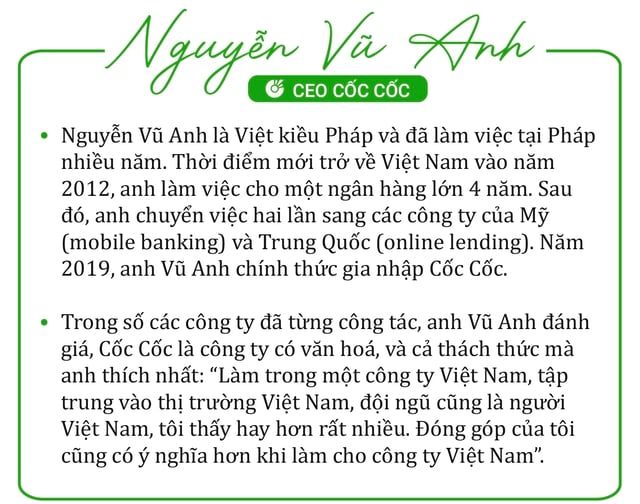
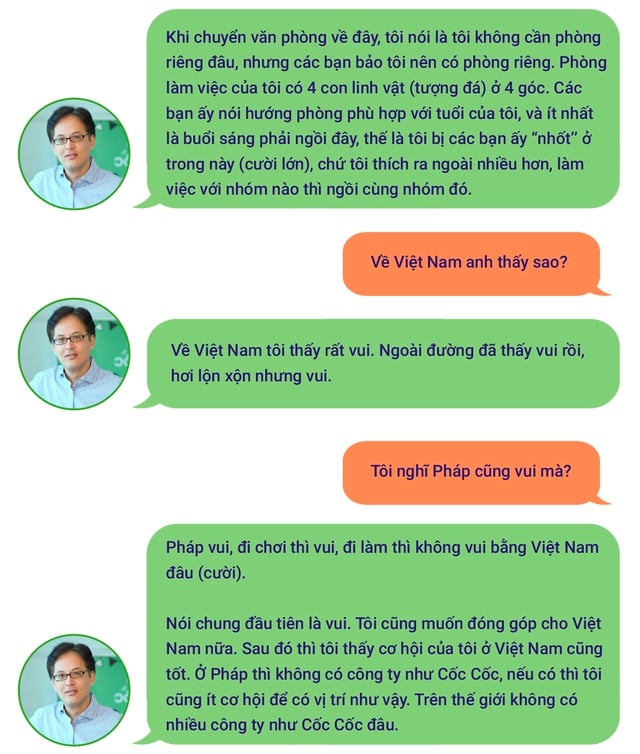

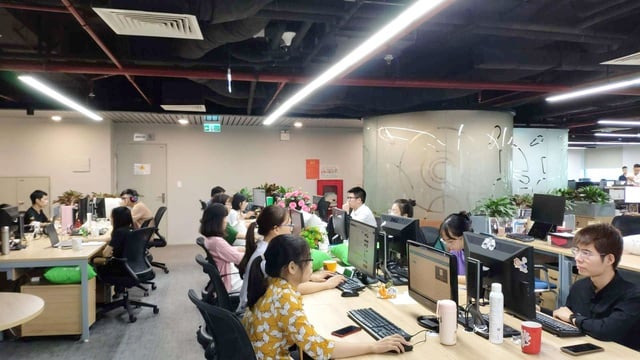
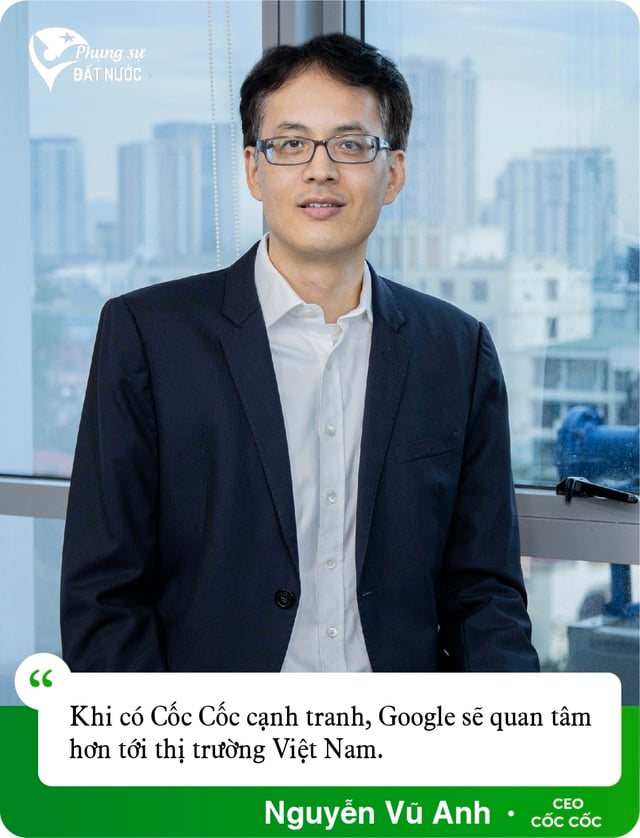

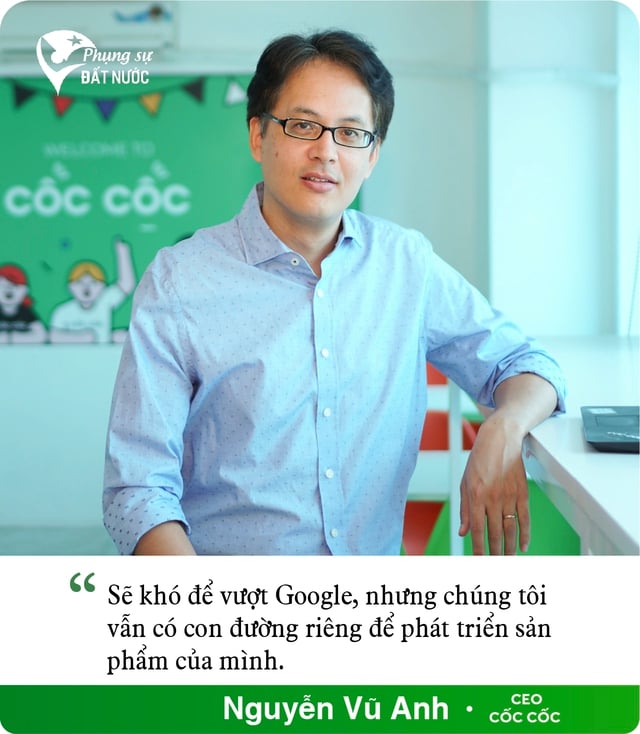

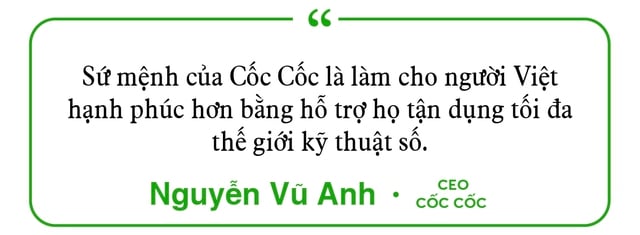
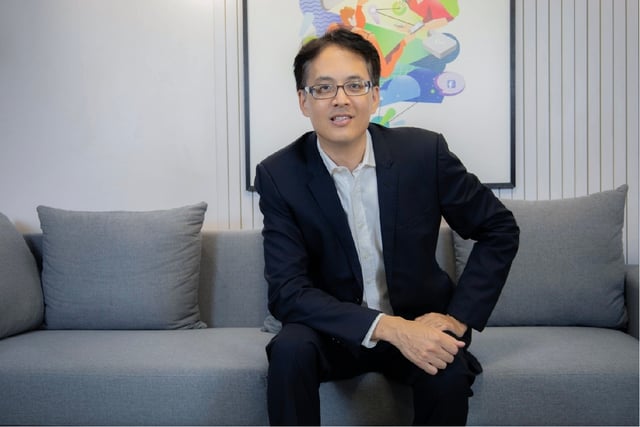

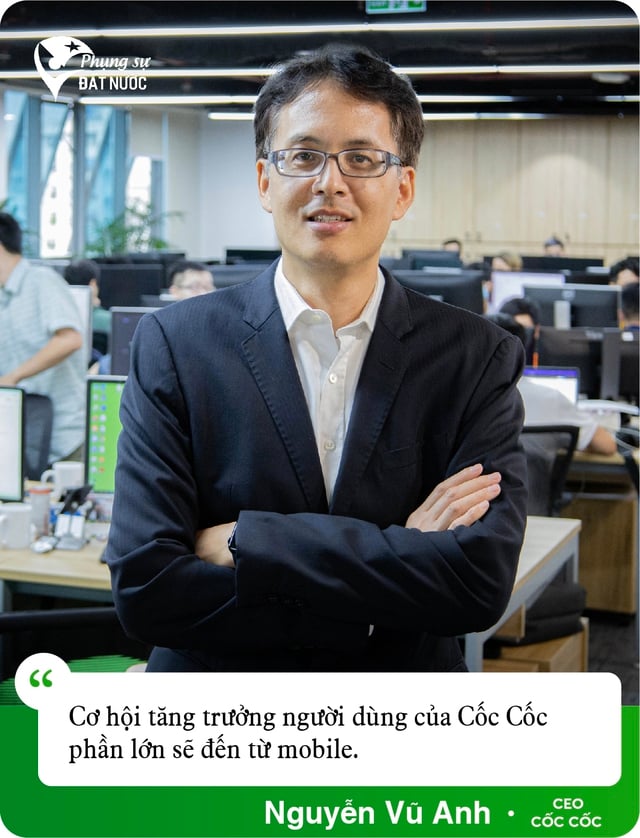




![[Photo] Da Nang: Water gradually recedes, local authorities take advantage of the cleanup](https://vphoto.vietnam.vn/thumb/1200x675/vietnam/resource/IMAGE/2025/10/31/1761897188943_ndo_tr_2-jpg.webp)

![[Photo] Prime Minister Pham Minh Chinh attends the 5th National Press Awards Ceremony on preventing and combating corruption, waste and negativity](https://vphoto.vietnam.vn/thumb/1200x675/vietnam/resource/IMAGE/2025/10/31/1761881588160_dsc-8359-jpg.webp)











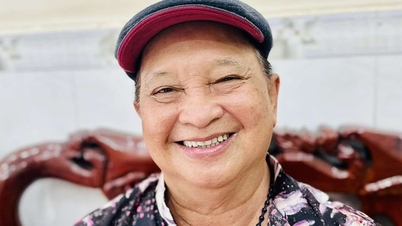
























































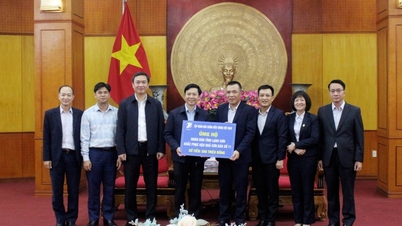




















Comment (0)